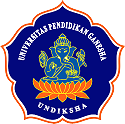Gambaran Kesejahteraan Subjektif Siswa Pengguna Media Sosial SMA Negeri se-Kecamatan Karanganyar
DOI:
https://doi.org/10.23887/jurnal_bk.v7i2.1213Keywords:
Subjective well-being, social media, studentsAbstract
Subjective well-being in using social media affects mental health in students. The research objective is to describe the subjective well-being of students using social media. The method used is descriptive quantitative with a sample of 303 students using social media. The instrument used is the subjective well-being scale with a validity coefficient of 0.356 to 0.739 and a reliability of 0.759. The results obtained through descriptive statistical analysis, the subjective well-being level of students using social media are in the moderate category (M = 41.01, SD = 3.66). Based on these results, it is expected to be a reference for BK teachers in providing interventions, services and support to students who use social media to improve their subjective well-being.
References
Diener, E., Lucas, R. E., Oishi, S., Hall, N., & Donnellan, M. B. (2018). Collabra: Psychology. Physiology & Behavior, 176(12), 139–148. https://doi.org/10.1525/collabra.115.Advances
Diener, E. (2000). Subjective well-being: The science of happiness and a proposal for a national index. American Psychologist, 55(1), 34–43. https://doi.org/10.1037/0003-066X.55.1.34
Diener, E., Pressman, S. D., Hunter, J., & Delgadillo-Chase, D. (2017). If, Why, and When Subjective Well-Being Influences Health, and Future Needed Research. Applied Psychology: Health and Well-Being, 9(2), 133–167. https://doi.org/10.1111/aphw.12090
Diener, E., & Tay, L. (2015). Subjective well-being and human welfare around the world as reflected in the Gallup World Poll. International Journal of Psychology, 50(2), 135–149. https://doi.org/10.1002/ijop.12136
Fitri, E. A. (2017). Hubungan Antara Konsep Diri Dengan Penerimaan Diri Siswa Kelas Vii Smpn 3 Bandung Tulungagung. 88.
Giyati, G., & Wardani, I. R. K. (2015). Ciri-Ciri Kepribadian Dan Kepatutan Sosial Sebagai Prediktor Subjective Well-Being (Kesejahteraan Subyektif) Pada Remaja Akhir. Insight: Jurnal Ilmiah Psikologi, 17(2), 151. https://doi.org/10.26486/psikologi.v17i2.693
Jebb, A. T., Morrison, M., Tay, L., & Diener, E. (2020). Subjective Well-Being Around the World: Trends and Predictors Across the Life Span. Psychological Science, 31(3), 293–305. https://doi.org/10.1177/0956797619898826
Keles, B., McCrae, N., & Grealish, A. (2020). A systematic review: the influence of social media on depression, anxiety and psychological distress in adolescents. International Journal of Adolescence and Youth, 25(1), 79–93. https://doi.org/10.1080/02673843.2019.1590851
Kross, E., Verduyn, P., Demiralp, E., Park, J., Lee, D. S., Lin, N., Shablack, H., Jonides, J., & Ybarra, O. (2013). Facebook Use Predicts Declines in Subjective Well-Being in Young Adults. PLoS ONE, 8(8), 1–6. https://doi.org/10.1371/journal.pone.0069841
Ma, L., Zhang, X., & Yan Ding, X. (2018). Social media users’ share intention and subjective well-being: An empirical study based on WeChat. Online Information Review, 42(6), 784–801. https://doi.org/10.1108/OIR-02-2017-0058
Moghavvemi, S., Sharabati, M., Paramanathan, T., & Rahin, N. M. (2017). The impact of perceived enjoyment, perceived reciprocal benefits and knowledge power on students’ knowledge sharing through Facebook. International Journal of Management Education, 15(1), 1–12. https://doi.org/10.1016/j.ijme.2016.11.002
Oktavianti, R., & Loisa, R. (2017). Penggunaan Media Sosial Sesuai Nilai Luhur Budaya di Kalangan Siswa SMA. Jurnal Pengabdian Kepada Masyarakat (Indonesian Journal of Community Engagement), 3(1), 86. https://doi.org/10.22146/jpkm.26925
Putri, W. S. R., Nurwati, N., & S., M. B. (2016). Pengaruh Media Sosial Terhadap Perilaku Remaja. Prosiding Penelitian Dan Pengabdian Kepada Masyarakat, 3(1). https://doi.org/10.24198/jppm.v3i1.13625
Wei, L., & Gao, F. (2017). Social media, social integration and subjective well-being among new urban migrants in China. Telematics and Informatics, 34(3), 786–796. https://doi.org/10.1016/j.tele.2016.05.017





